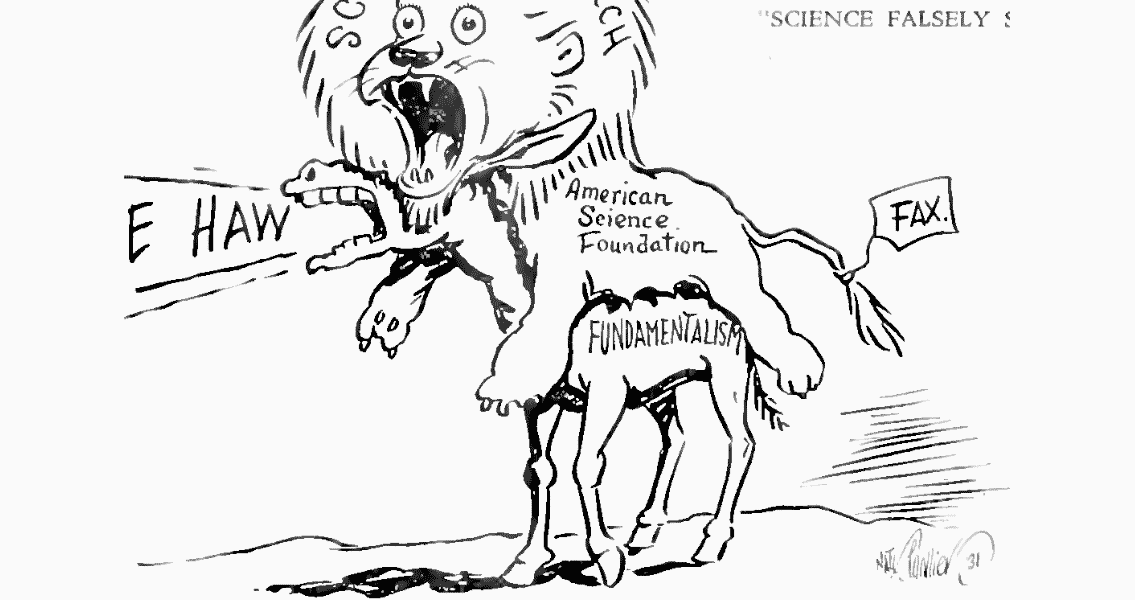<![CDATA[On the 12th November 1968 the verdict was announced in a landmark court case in the debate about whether creationism or evolution should be taught in American schools. The focus of the Epperson vs. Arkansas case was whether the Arkansas State Legislature had the right to ban the teaching of evolution in public and state funded schools. The Supreme Court ruled against the Arkansas legislature, striking a damaging blow against the creationist movement. The case originated in 1928, after the Arkansas State Legislature had passed a law prohibiting schools from teaching evolution, or even using text books that referenced it. Any teacher found breaking this law would face a fine and possible dismissal. Such a law seems incredible now, but similar legislation had been passed in other US states in the 1920s. For forty five years the law went unchallenged, until the biology department at a school in Little Rock adopted a new text book that included a chapter on Charles Darwin. Susan Epperson, a tenth grade biology teacher at the school in question, faced a dilemma - abandon the school biology curriculum, or teach the evolution content and risk dismissal. Epperson sued the state legislature, claiming the ban on teaching evolution impeded her right to freedom of speech, as guaranteed by the First Amendment in the US Constitution. The case was filed to the Chancery Court in Pulaski County initially, which agreed with Epperson. It was then taken to the Arkansas Supreme Court, which reversed the lower court's ruling. It was finally referred to the US Supreme Court, which unanimously agreed with Epperson that the state's laws violated her constitutional rights. Justice Fortas wrote after the hearing; "The State's undoubted right to prescribe the curriculum for its public schools does not carry with it the right to prohibit, on pain of criminal penalty, the teaching of a scientific theory or doctrine where that prohibition is based upon reasons that violate the First Amendment." The Epperson vs. Arkansas case was significant as it placed limitations on the power of state governments to get involved in the debate over what was taught in America's schools. It was just one event in the long running dispute between creationism and evolution that continues to divide American Society. As far back as 1925, high school biology teacher John Scopes was put on trial for violating Tennessee's laws about teaching evolution. Although in this instance Scopes was found guilty, the trial generated a media storm. The focus of the case quickly shifted from questions of Scopes' guilt to the scientific basis of creationism. The pro-creationists most vocal advocate was William Jennings Bryan, who spectacularly failed to provide clear scientific evidence in support of creationism. Scopes may have been found guilty, but the trial represented a moral victory of sorts for evolutionists. To this day, the debate about what balance of creationism and evolution should be taught rages on, in both the United States and further afield. Overall the 1960s seemed to witness evolution take increasing precedence in US curriculums, at least in the study of biology. The result of the Epperson vs. Arkansas trial can be seen as a very clear example of this overall trend in American culture. Since then however, court cases between creationists and supporters of evolution still continue, and pro-creationists are undoubtedly still hugely influential. Ultimately, it is a complex debate about the nature of pedagogy and knowledge. The Epperson and Scopes trials both seemed landmark events in their own time, but we can see this dispute shows no signs of stopping.]]>
Anniversary of the Epperson Vs. Arkansas Verdict
